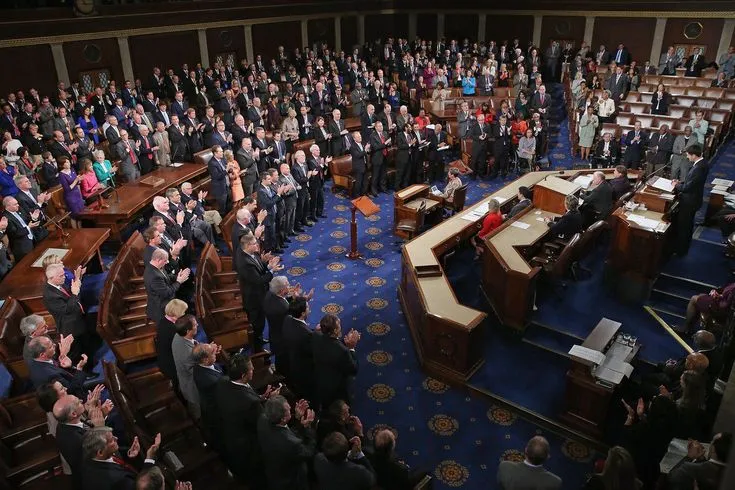The U.S. Senate approved the $895 billion National Defense Authorization Act (NDAA) on Wednesday, securing funding for critical military programs and operations. However, a provision restricting gender-affirming care for transgender children of service members ignited fierce debate, leading some Democrats to vote against the bill.

Passing with an 85-14 vote, the NDAA received strong bipartisan support. Yet, the inclusion of a clause limiting healthcare options for transgender youth sparked outrage among progressive lawmakers and LGBTQ+ advocates. Critics argue that the provision unfairly targets a vulnerable population and politicizes military policy.

Senators Elizabeth Warren (D-MA) and Bernie Sanders (I-VT) were among those who opposed the bill, citing the transgender care restriction as discriminatory. “This measure harms transgender children and their families,” Warren said. “It’s unacceptable to use a defense bill to advance such harmful policies.”
For many Democrats, the vote presented a moral dilemma: support a bill vital to national security or reject it to protest the controversial provision. Sanders acknowledged the importance of the NDAA but emphasized his objections. “I cannot support a bill that denies essential care to a marginalized group,” he stated.
Despite these concerns, other Democrats, including Senate Majority Leader Chuck Schumer (D-NY), voted in favor of the bill. Schumer called the NDAA “imperfect” but stressed its significance. “While I disagree with this provision, rejecting the bill would harm troop pay raises, weapons programs, and our ability to address global threats,” he said.
Republicans, who largely supported the provision, defended it as a measure to protect children and ensure responsible use of taxpayer funds. Senator Josh Hawley (R-MO) argued, “This is about safeguarding children and preventing taxpayer dollars from funding experimental medical procedures.”
The NDAA includes key provisions such as a 5.2% pay raise for troops, investments in advanced weaponry, and measures to bolster cybersecurity. However, the transgender care restriction has drawn significant attention, raising concerns about the growing intersection of social policy and defense funding.

LGBTQ+ advocacy groups have vowed to challenge the provision through legal and legislative avenues. Sarah Warbelow of the Human Rights Campaign called the clause “an unconscionable attack on transgender children and their families.” She added, “These families sacrifice so much for our country. They deserve respect and access to care, not discrimination.”
While President Biden is expected to sign the NDAA into law, the White House has expressed opposition to the transgender care restriction and indicated plans to address the issue after the bill’s passage. Meanwhile, Democratic leaders like House Minority Leader Hakeem Jeffries (D-NY) have pledged to continue fighting for the provision’s removal.
The debate over the NDAA highlights the challenges lawmakers face in balancing national security priorities with social policy. As the bill moves forward, the controversy surrounding the transgender care provision serves as a reminder of the complexities of governance in a deeply divided Congress.


